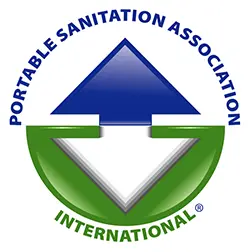PSAI: Portable Sanitation Association International

PSAI, the Portable Sanitation Association International, was established in 1971 and is the largest trade association of its kind in the world. As an international organization with portable restroom operator and supplier member companies in countries all over the world, PSAI develops and promotes industry standards, serves as a repository of information and resources for operators, suppliers, government entities, and the general public, and provides recognition for excellence in the portable sanitation field. Standards from PSAI are available both individually, directly through the ANSI webstore, and as part of a Standards Subscription. If you or your organization are interested in easy, managed, online access to standards that can be shared, a Standards Subscription may be what you need - please contact us at: [email protected] or 1-212-642-4980 or Request Proposal Price.
Below are PSAI's best-selling standards. To find additional standards, please use the search bar above.
ANSI/PSAI Z4.3-2016
Sanitation - Nonsewered Waste-Disposal Systems - Minimum Requirements
This standard applies to sanitary waste disposal systems, including at places of employment, wherever such systems are not connected to a sanitary sewer, septic tank or on-site sewage-disposal treatment facility.
ANSI/PSAI Z4.1-2016
Sanitation - In Places of Employment - Minimum Requirements
This standard applies to minimum requirements for sanitation in all places of employment except where domestic, mining or common carrier transportation work only is performed. It does not apply to temporary employment locations or places where non-sewered waste disposal systems are in use as those are covered in American National Standard: For Sanitation Non-Sewered Waste Disposal Systems: Minimum Requirements, ANSI/PSAI Z4.3-2016. It also does not apply to family housing provided by the employer in one- or two-family dwellings, or to temporary labor camps; these are covered by American National Standard: For Sanitation in Temporary Labor Camps: Minimum Requirements, ANSI/PSAI Z4.4-2016. Measures to control toxic materials are outside the cope of this standard.
ANSI/PSAI Z4.4-2016
Sanitation - In Fields and Temporary Labor Camps - Minimum Requirements
This standard prescribes minimum environmental health requirements for field sanitation and for temporary labor camps that will include persons with or without their families employed in any occupation or work for which labor-force quarters are provided.
